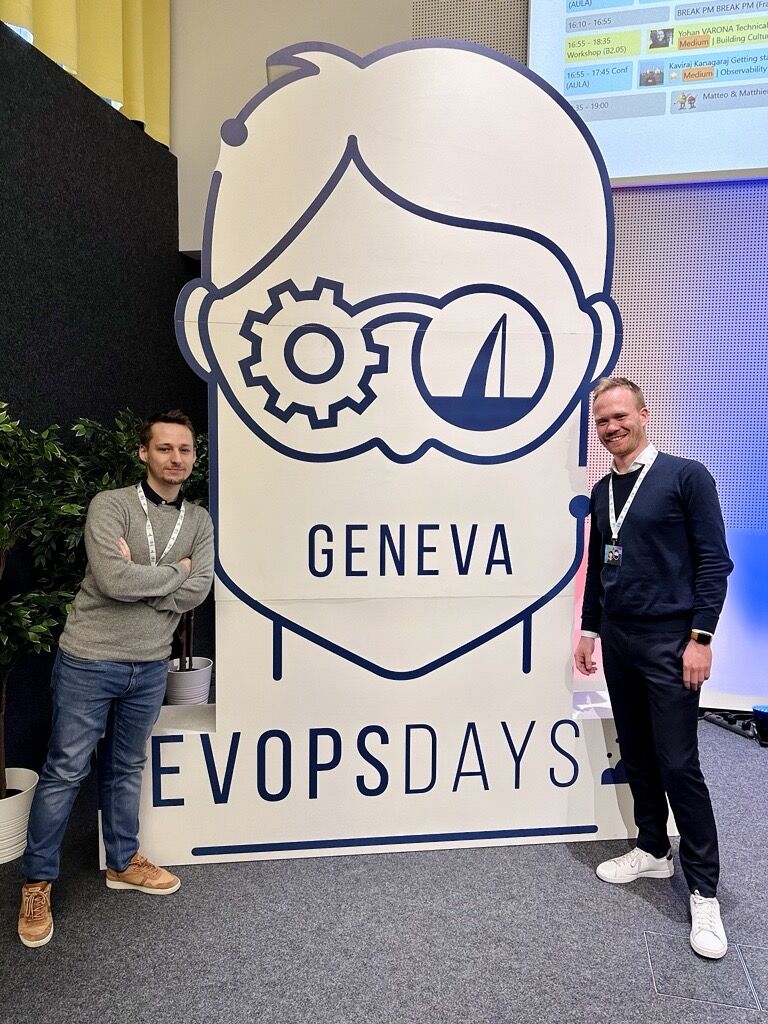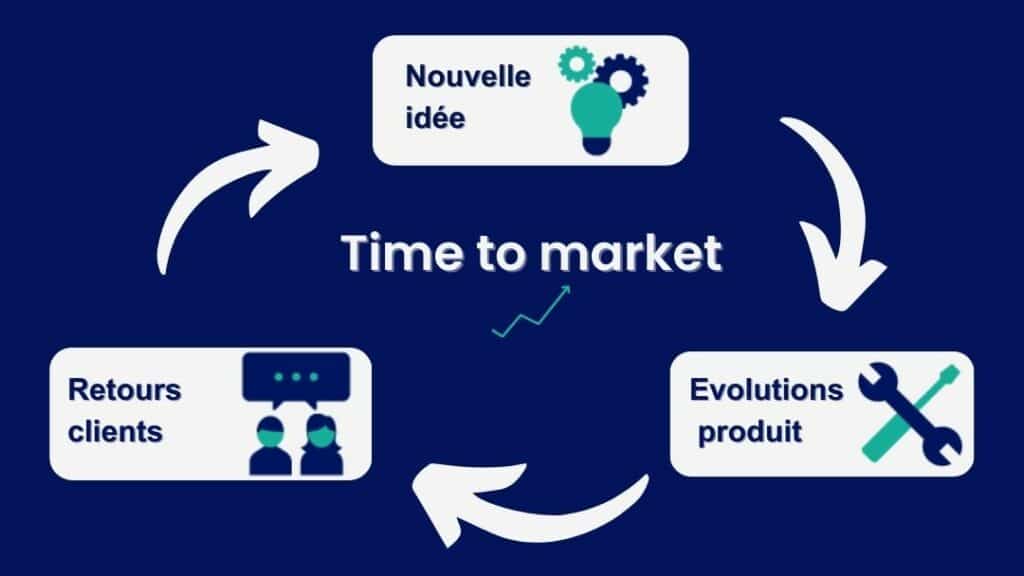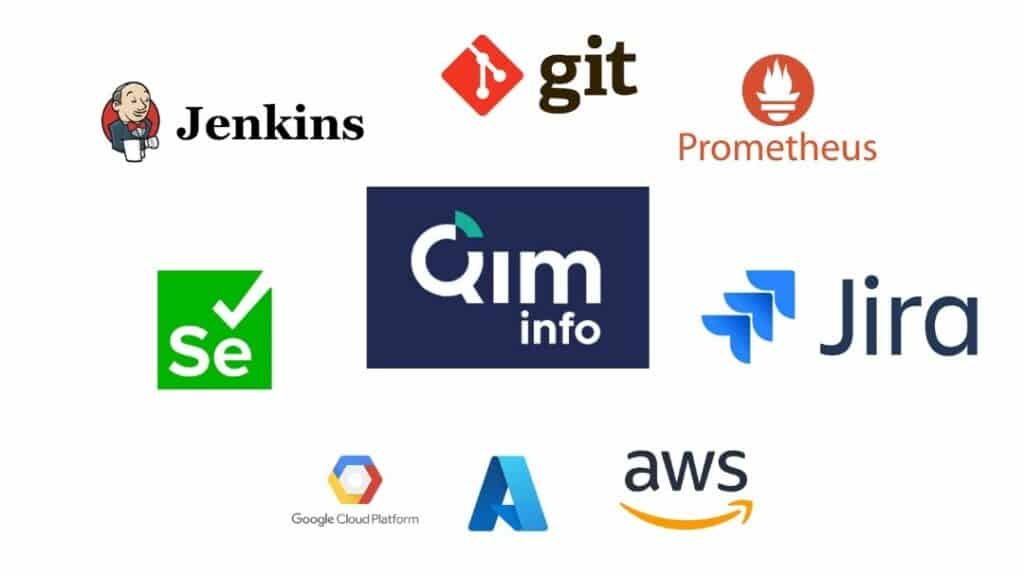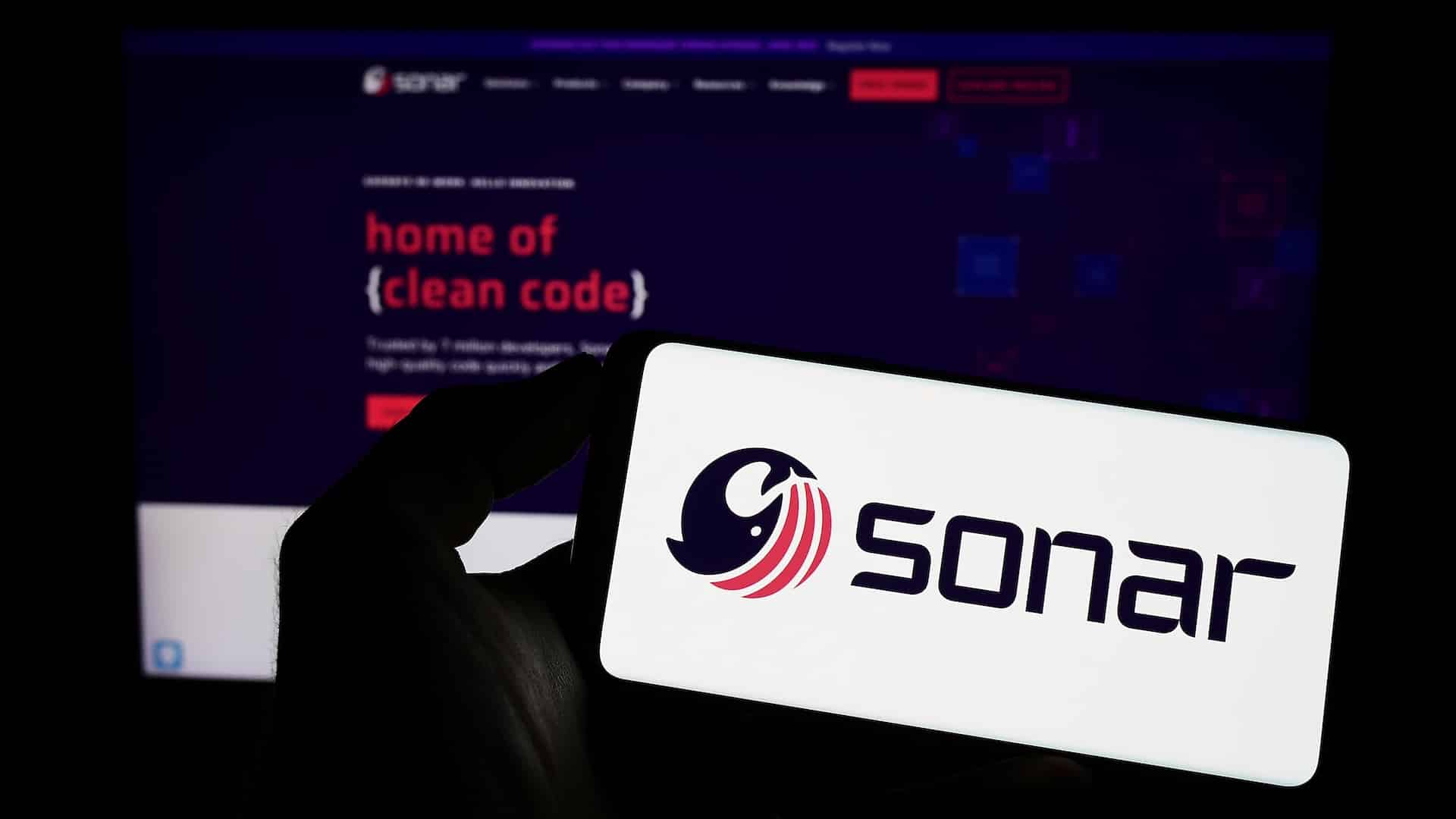Our vision of DevOps services, their benefits for your business and the entire Qim info offering.
How about optimizing your time to market, while improving the customer experience and teamwork? DevOps is a reality.
If you’ve read
our full article on DevOps
As you already know, it’s a set of practices designed to increase a company’s responsiveness through an iterative and automated approach, which has the advantage of decompartmentalizing business lines. More than just an approach, DevOps is also a genuine philosophy, a corporate culture based on three essential elements: a culture, processes and tools. The aim of this article is to present Qim info’s offer to help you implement DevOps in your company.
That’s why we have a clear vision of the DevOps we’re going to develop.
Our vision of DevOps
As I explained in an interview designed to introduce our
Cloud & DevOps Solutions department
I like the idea of involving Devs and Ops in a common project and objective, integrating them and valuing their work by improving communication between these teams.
This is our vision of DevOps at Qim info: breaking down barriers, streamlining communication to be responsive to the market and satisfy customer needs.

It was with this in mind that we launched the
DevOps First Friday
which enable our employees to exchange ideas in a friendly, informal atmosphere, with no set agenda. Once a week, all DevOps staff get together to discuss technology watch and current projects at the
Center d’Expertises Qim info
We invite you to join us to discuss a topic or raise a technical problem, and get feedback from our colleagues.
I also took part in DevOpsDays Geneva 2023 to exchange ideas with other players in the field.
Our team approach is our strength, and we can put our experience to work for you.
Let’s not forget that the primary challenge is not technological, but human, insofar as we need to start by federating our teams before initiating new processes or integrating new tools.
Let’s take a look at the benefits of the DevOps approach.
Ebook gratuit
The benefits of DevOps for the enterprise
There are many advantages, but here are the main ones:
Speed
This is perhaps the benefit most emphasized in the DevOps approach. The aim of an IT company is to deliver applications and services as quickly as possible with optimum quality, and this is facilitated by DevOps, whose operation could be summed up by the word “continuous”. Indeed, each stage in the DevOps lifecycle is not linear, but cyclical. Literation is to test and validate each step to make sure it works, before moving on to the next. This phase is repeated as many times as necessary, hence the idea of continuity. Also, a maximum number of tasks are automated.
Together, these processes save precious time, enabling your company to benefit more quickly from the commercial value of its product.
Profitability
This advantage is directly linked to speed. TTM (Time to market) is a crucial indicator for many companies. It measures the time needed to develop a product, in other words, the time from idea to market launch. However, the shorter this period, the more your company is considered to be competitive to its competitors.

Efficiency and reliability
Since the DevOps lifecycle is based on the principle of iteration and sprints, code quality is constantly improved and any malfunctions are corrected as quickly as possible. In this way, continuous integration and continuous delivery ensure that every modification is functional, and that production deployment is reliable.
Business agility
We’re talking about ability to adapt quickly to changes, unforeseen events, trends and flexibility. This is an essential skill for an ESN (Entreprise de Services Numériques), which has to stay at the cutting edge and react to changing circumstances. This is a reference to agile methods, whose aim is to promote flexibility and place teams and customers at the heart of the creative process.
Customer and team satisfaction
One of the main characteristics of DevOps is the constant improvement of the human experience by involving customers and teams as much as possible, through the “continuous control” flow. Teams communicate more easily, delivery is faster thanks to regular feedback, and applications are designed more closely to customer expectations. and problems are identified as early as possible (with the Shift-Left approach)
These are just some of the reasons why the DevOps approach offers real added value for a company. But why would you choose Qim info as your partner?
Why choose Qim info to develop DevOps in your company?
If you’re looking to adopt a DevOps approach, Qim info can provide you with the best support for your business.
That’s right, our role is to support you in unifying software development (Dev), security and IT infrastructure administration (Ops), so that you can focus on your business value and rapidly achieve your own objectives. To achieve this, we propose 3 areas of work:
- Working together We improve team coordination and collaboration by proposing new processes and adapted tools. We bring teams together around a common vision to make the best decisions.
- Software quality Deployment automation is an essential part of software industrialization, to increase quality and productivity. With our DevOps platforms, automate and optimize your processes for maximum efficiency. CI/CD pipelines automate software delivery. We implement infrastructure-as-a-code, improve quality with code review and testing tools, and implement security vulnerability analysis tools (DevSecOps).
- Reduced time-to-market (time to market): we detect regressions immediately, so we can deploy the application in production more quickly.
This means that we take complete charge of your project, from the initial idea through to implementation and follow-up.
Assessing your DevOps maturity
Keep in mind that “measurement” is an essential part of DevOps culture. Evaluating and taking a “snapshot” of your starting point will then enable you to measure your progress and therefore the return on your DevOps investment.
Qim info’s DevOps maturity audit is based on work developed by Google over the last 8 years, with over 33,000 IT professionals. It aims to assess your organization’s ability to implement DevOps practices, and to measure your maturity in this area. Here is a summary of the benefits and steps involved in carrying out such an audit:
- Performance assessment The audit enables you to assess your organization’s performance in terms of software deployment, delivery frequency, service stability and recovery.
- Identifying opportunities for improvement The audit highlights areas where improvements can be made to optimize development and operating processes, reduce obstacles and increase your company’s overall efficiency.
- Benchmarking Benchmarking: the audit provides a basis for comparing the organization’s DevOps maturity with that of other similar companies, based on benchmark data provided by Google.
By carrying out a DevOps maturity audit based on this model, your organization can obtain an objective assessment of its DevOps performance and identify opportunities for improvement. This will optimize development and operating processes, accelerate deployments, improve the stability and quality of software services, and enhance the organization’s competitiveness in the marketplace.
The DevOps solutions we use
Among the various DevOps tools we use at Qim info, let’s take a look at a few examples of tools related to infrastructure computerization:
- Source code management tools such as Git, the essential version management system, which can be used via software factories like GitLab, GitHub, Subversion, Azure DevOps or Bitbucket.
- Configuration management tools automate important and frequent tasks in an IT environment. Today, Ansible is an indispensable configuration management tool, often complemented by Terraform for infrastructure-as-code
- CI/CD tools automate software construction, testing and deployment processes. Popular tools include Jenkins, GitLab CI/CD, Travis CI, CircleCI, Bamboo, Microsoft Azure DevOps and AWS CodePipeline.
- Test tools These include JUnit (Java), Selenium (frontend), TestNG (.NET) and Appium (mobile app).
- Monitoring and alert tools monitor the performance and availability of applications and IT infrastructures. We recommend Prometheus, Grafana, Elastic Stack, Datadog or New Relic. You can also instrument your code and fine-tune its execution with a tool like OpenTelemetry.
- The most popular project management tools are Jira, Trello, Asana, GitLab, GitHub and Microsoft Azure DevOps, which offer both free and paid versions, depending on your needs.
- Containerization tools gather software code and components into their own container. These include Kubernetes via OpenShift, Rancher, AKS and EKS; Docker and its Cloud Native ecosystem (CEPH, S3, Kafka, OIDC authentication, Service Mesh).
- Cloud providers such as Microsoft Azure, Amazon Web Services (AWS) and Google Cloud Platform. If sovereignty is one of your priorities, Scaleway or Exoscale may be the right choice.

Of course, these are just a few examples of the tools we use. We invite you to consult the
Cloud Native Interactive Landscape
which lists a large number of recognized tools.
Ebook gratuit
Qim info: your DevOps partner!
Not only are we the 3rd largest IT company in French-speaking Switzerland, as detailed in our
our article on digital services companies
but we are also certified by the DevOps Foundation.
We have a “Cloud & DevOps Solutions” department within the Centre d’Expertises, whose offering is built around 4 services:
- The first concerns your DevOps transformation by means of a maturity audit. We guide you through your transformation and support your software production.
- The second focuses on the
Cloud
In addition, we carry out feasibility and cost studies upstream of any potential migration to the Cloud by the customer. Once the architecture and governance have been defined, we support you in deploying and securing your Cloud environments; - Our third service concerns so-calledcontainer orchestration(Kubernetes, Docker…) to enable our customers’ data and services to be highly available everywhere, all the time, and quickly;
- Finally, we propose to offer an application observability system (logs, metrics, traces) adapted to our customers’ specific technical and business requirements, for real-time monitoring in the cloud and optimum security.
Once your objectives have been met and your project finalized, we train your teams to ensure optimal use. We ensure the availability and maintenance of your services to guarantee their long-term performance.
Our Centre of Expertise operates on a project basis, with a commitment to results or means, offering the option of delegating one of our consultants full-time. Qim info is your partner for custom solutions, adapted to your company, regardless of your industry or company size.
In conclusion, we suggest that you meet with us to discuss your project. Let’s define your needs, see whether your objective is more suited to the Center of Expertise or to delegation, and work together to bring the DevOps culture into your company.

Clément Raussin
Head of the Cloud & DevOps Solutions Department at Qim info







